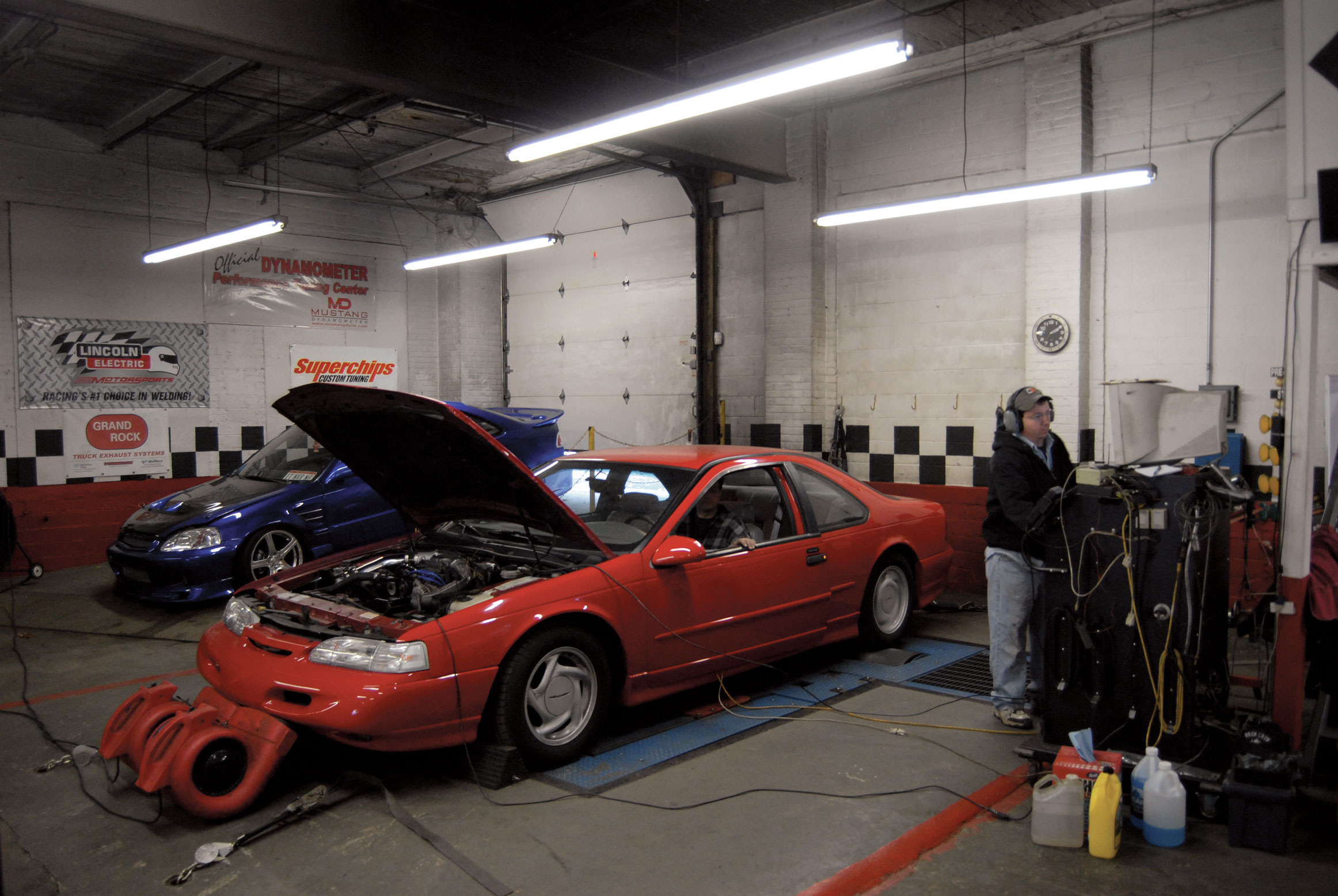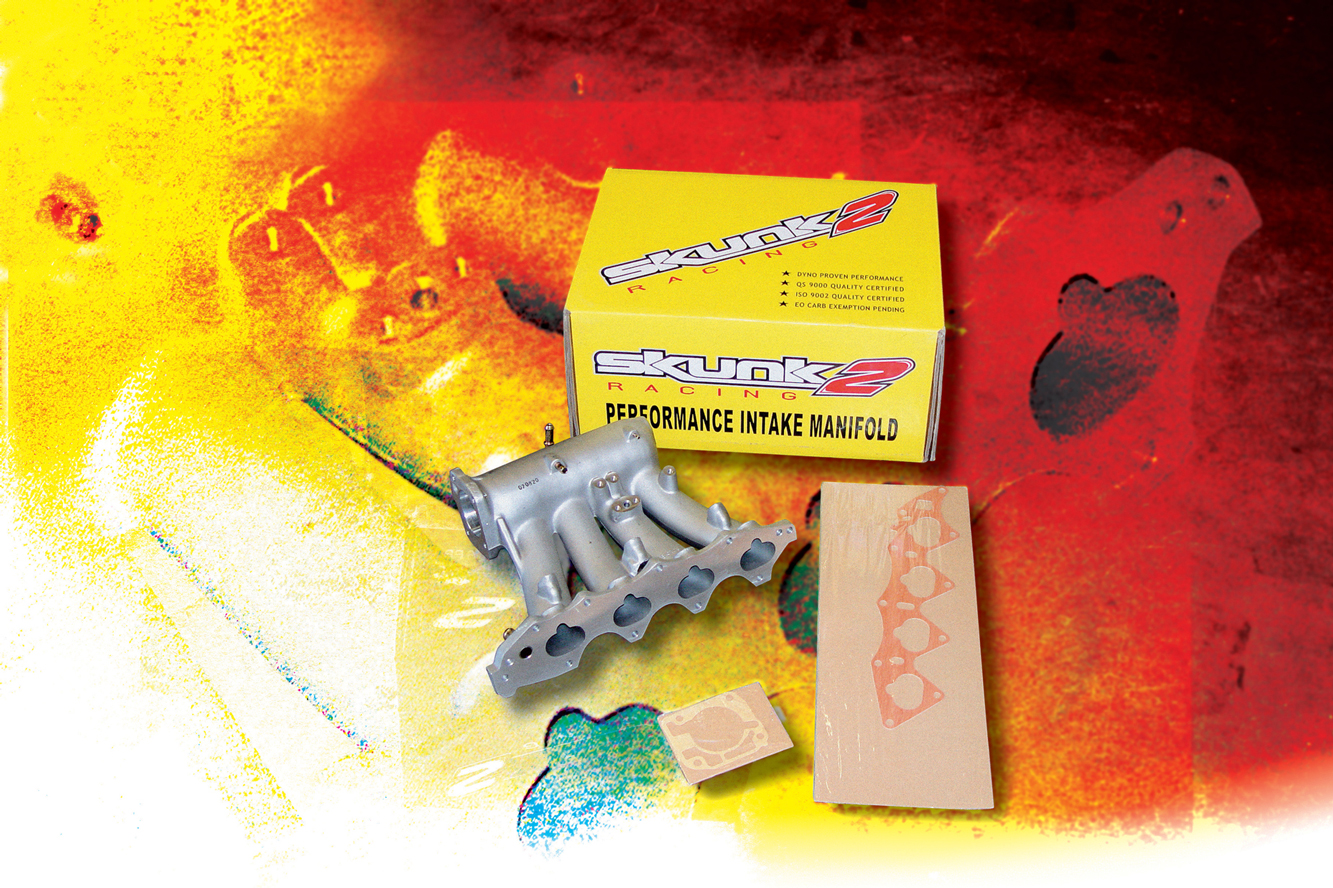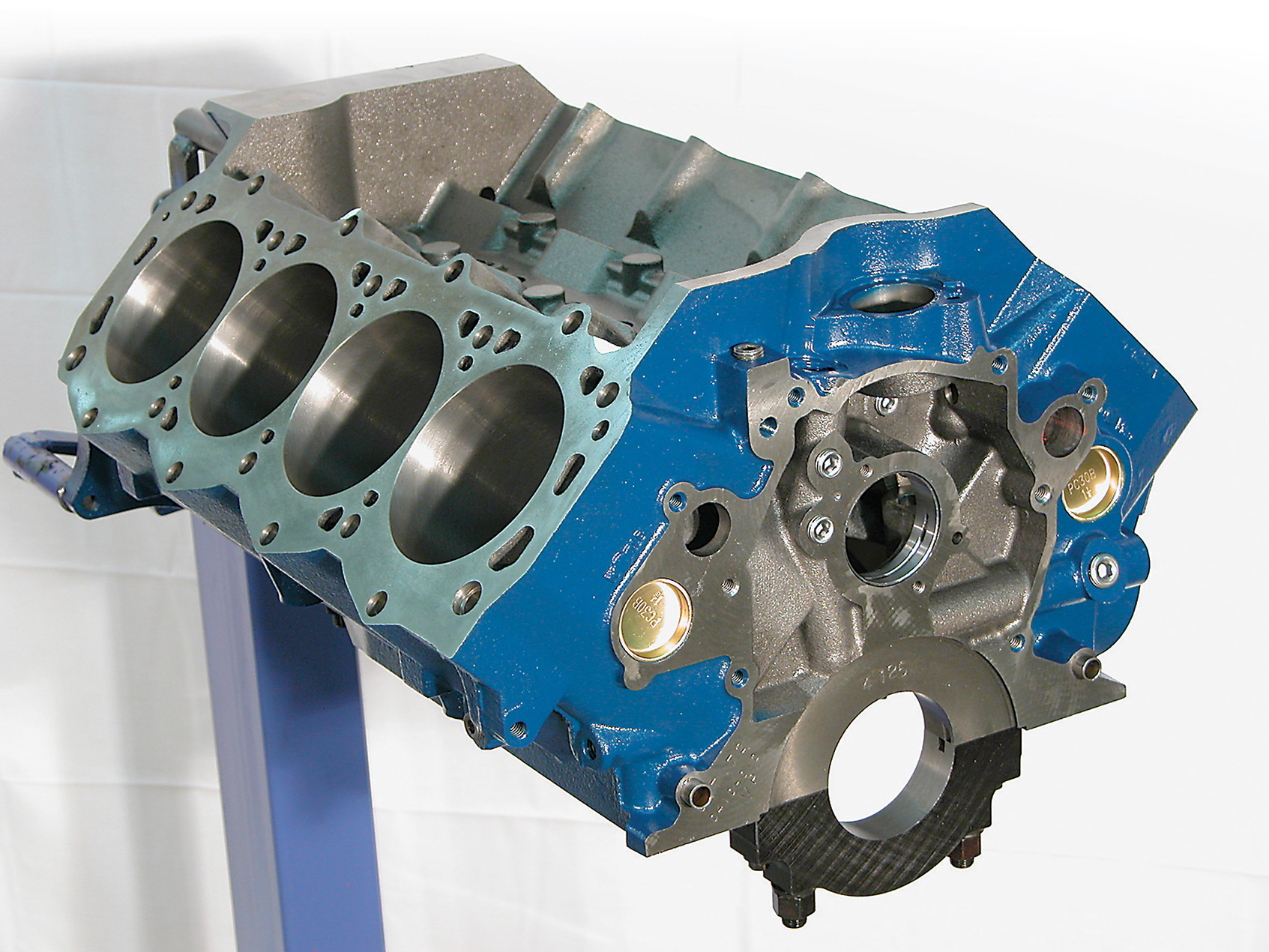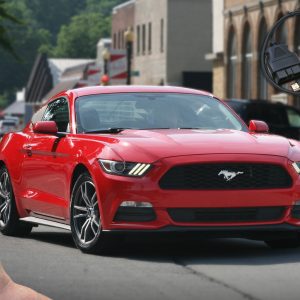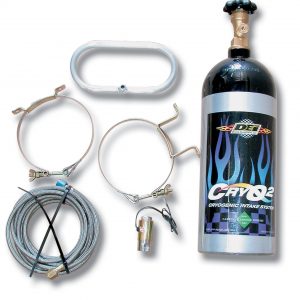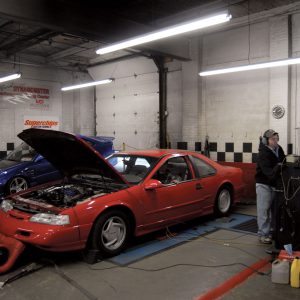Day Automotive Builds 573hp from Your Not-So-Basic 409
You can drive this bad boy coast to coast and burn all the rubber you want in between.” That was Day Automotive’s Tony Shaffer proclaiming the abilities of his shop’s 482/409. Soon thereafter, we were entering the confines of Day Automotive in Independence, Missouri, where Shaffer and crew had just completed the engine in seven days. It represents what can be accomplished power-wise with the right combination of parts, plus some internal modifications. And with a 10.0:1-compression ratio, it’s very street-friendly.
For years Day Automotive has been building some of the quickest 409s around. Tony’s brother Donnie currently runs 9.90s with his highly modified, 444ci “Obsolete Missile II” ’63 Chevrolet, and Dave Campbell runs 10.40s with his stock (non-Z11) 409-induction, 11.8:1-compression, 482ci engine. That car weighs 3,500 pounds with the driver. Not too shabby!

W-motors have always responded well to modifications. In the case of this particular engine, its 573 hp at 6,200 rpm and 560 lb-ft of torque at 3,900 rpm impressed even Tony. Small- and big-block street engines generally produce the same peak power-per-cubic-inch. Not only were these peak numbers impressive, but the real story here is that the power was produced all across the rpm scale. This is what wins races and makes an engine supremely fun to drive.
Its torque output only dropped by 54.4 lb-ft from 3,900 rpm through 6,200 rpm. Horsepower increased by 160 from 3,900 rpm to 6,200 rpm. Tony thinks a little more tweaking will produce the magic 600 hp! This is pretty good for medium ports and very little time-consuming technology. Hey, this just points out how good a W-motor really is.

The key to a successful engine buildup is the right combination of parts working well together, plus precise machine work, assembly and induction/breathing trickery. For your ease of review, we have listed the entire engine parts list in a sidebar. The valvetrain components are very impressive, as are the camshaft, roller rocker arms, screw-in studs and custom guideplates. The dual four-barrel intake manifold has over three hours of port-matching and port curvature blending and smoothing. The extra power gained is a secret, but Tony was very impressed with the results.
From 482ci with a 10:1-compression came 573 hp. That’s 1.19 hp-per-ci. Interestingly, peak power was just a few digits less at 5,800 rpm. Ditto right on down the rpm scale. This is the telltale mark of a great street/strip winner. Ditto on its torque output.
The Eagle steel crankshaft began life ground to 454 specs, but Day Automotive downsized it to 409 specifications. The Eagle big-block H-beam connecting rods are lighter than stock, but stronger. What’s the complete cost of this engine? With the headers and carburetors, Tony said it’s in the $15,000 area—complete. You may already have an engine that can be modified to spec, or parts such as carbs, headers, ignition, water pump, balancer and so on. Understand that much expense is in the Eagle crankshaft preparation, balancer, rods, pistons, camshaft, valvetrain and head porting.
As 409 owners and competitors, we have been amazed for 40 years how strong they perform. All those national championships and records don’t lie. It goes to show that GM knew exactly what it was doing oh-so-many years ago. So does Day Automotive today.
Article Sources
A Bruneau Performance
http://www.bruneauperformance.ca/
403/854-4097
Box 2229, Hanna Alberta, Canada T0J 1P0
Doug Thorley Headers
http://www.dougthorleyheaders.com/
951/739-5900
1180 W. Railroad St. Corona, CA 92882

 By
By 


